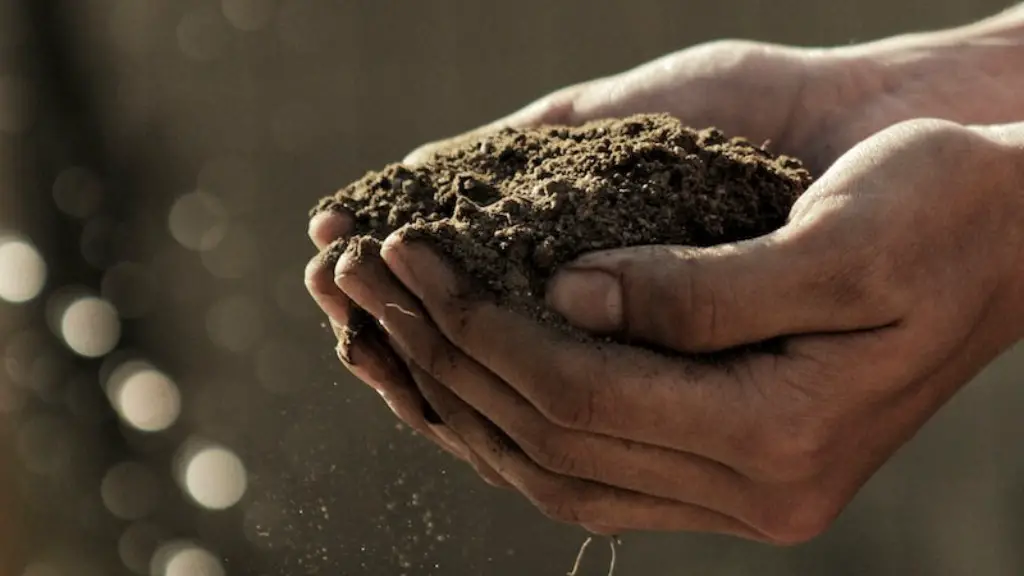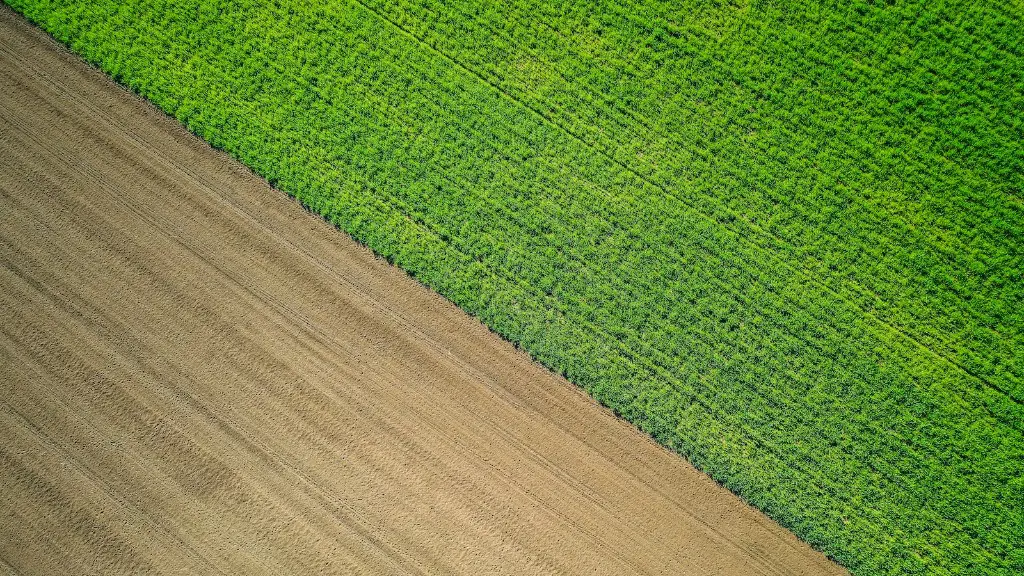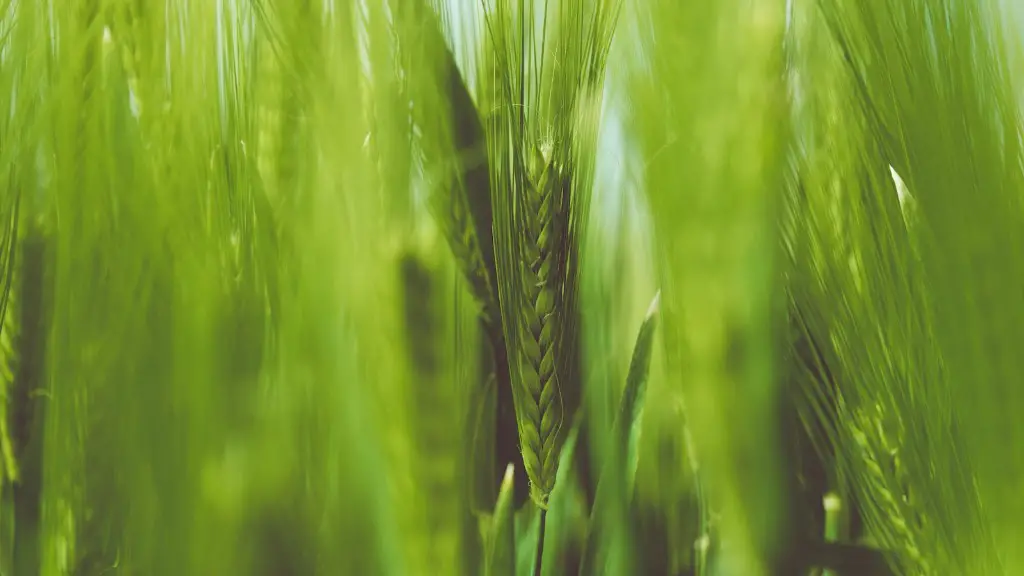Chemistry is an integral part of modern agriculture, but there are some activities it does not play a role in. For starters, chemistry does not play a role in deciding which crops to grow or livestock to raise. This decision is entirely dependent on the needs of the farmers, market demand, and environmental considerations such as soil composition, climate, and water availability. It also does not have any role in selecting the breed of poultry, cattle, or livestock or the type of crop to be grown, as these decisions are driven by the farmer’s judgment and experience.
Chemistry is also not responsible for installing, inspecting, or maintaining water pumps or other farm equipment. Neither does it have a hand in protecting crops from pests or distributing fertilisers. These activities are all done by farmers and farm workers.
Another area where chemistry plays no role is in providing credit facilities to farmers. This task is carried out by banks and other financial institutions—chemistry has no role to play here.
Finally, chemistry has no role in logistical operations such as arranging transport, packaging, and storage. Here too decisions are made by the farmer or a hired logistics expert.
Roles Chemistry Does Play in Modern Agriculture
Despite it not having a role in some areas of modern agriculture, chemistry plays an important role in others. For example, it is essential for making sure that the soil is in optimal condition for planting, and for producing fertilisers, biocides, and herbicides that help control pests, weeds, and fungi. Furthermore, analytical chemists help farmers to decide their soil nutrition plan, as well as specializing in disease diagnostics for their crops.
Chemistry also helps farmers to develop and implement efficient fertilisation and irrigation programmes through the use of modern technologies. It can also be used to produce new and improved species of crops; biotic-resistant seeds are one such example, which can help increase crop yields.
Chemistry is also responsible for providing accurate information about soil and water conditions, as well as helping farmers to determine the best management practices for their production systems. It is also used to produce crop protection and growth regulator products, and to determine the best management practices for sustainable agriculture.
Finally, chemistry plays a crucial role in marketing, as analytical techniques are used to assess the quality of the produce going out to market. As such, farmers are able to get the best price for their produce by ensuring that it conforms to the highest standards of quality.
The Benefits of Chemistry in Modern Agriculture
The benefits of using chemistry in modern agriculture are numerous. Perhaps the most important of these is that it helps farmers increase the productivity of their crops. By using modern technologies, such as precision agriculture, growers can adjust the rates of fertilisation and pesticide applications according to the demand in their area, giving them an increased chance of success.
Besides increased productivity, the use of chemistry in modern agriculture also helps farmers reduce the cost of production. For example, through the use of laboratory testing, they can identify the most effective fertilisers, biocides, and herbicides to use, thereby reducing the amounts they need to purchase.
In addition, chemistry can also help farmers to avoid the spread of diseases in their crops. By monitoring water quality, they can prevent the spread of diseases by changing the irrigation system, and by using biocides and herbicides, they can control fungal and bacterial diseases which might otherwise be present in the crops.
Finally, by using chemistry in modern agriculture, farmers are better able to maintain their farms for long-term sustainability. By using genetic engineering and micro-organism management, they can ensure that their crops have a longer shelf-life and are less prone to diseases, while also reducing their reliance on pesticide and fertiliser solutions.
The Challenges Involved in Using Chemistry in Agriculture
While there are numerous benefits associated with the use of chemistry in modern agriculture, there are a few challenges that farmers may face. One of the main issues is the correct application of chemicals in the farm. Without proper knowledge and training, there is a chance of over- or under- application of fertilisers, biocides, and herbicides, which can have an adverse impact on their crops.
Another challenge is the cost associated with using these chemicals. In most cases, these chemicals are expensive and have to be used in large quantities. Moreover, due to the complexity of the formulations, there is a need for specialised equipment for their application, which can be costly for many farmers.
Finally, there is the challenge of managing the risks associated with the use of chemicals in modern agriculture. While the benefits may outweigh the risks in certain cases, it is still important to be aware of the potential harm that could be caused by incorrect handling, storage, and application of these products.
The Impact of Chemistry on Modern Agriculture
Overall, chemistry has had a positive impact on modern agriculture. Through the use of modern technologies, farmers can increase their productivity, reduce their cost of production, and manage the risks associated with the use of chemicals. Moreover, through their understanding of the science, farmers can ensure that their farms remain sustainable for the long term.
In addition, the use of analytical techniques has helped farmers to understand the soil and water conditions and use the best possible methods for their crops. This has ensured that farmers produce quality produce and get the best price for their produce in the market.
Finally, chemistry has enabled farmers to manage the risks associated with using chemicals, by understanding the potential effects of incorrect use and storage. In this way, they can ensure that their use of chemicals has a minimal impact on the environment, while maximising their profits.




